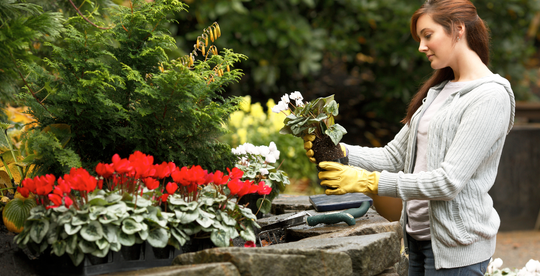Allergy Season

Leave the sniffles behind: Warding off summer allergies
Early spring usually comes to mind when we think about the typical allergy season. While we may be headed toward warmer summer months, we’re not in the clear when it comes to allergies.
Allergies can strike at any age or time of year. According to the American Academy of Allergy, Asthma and Immunology, pollen, mold, insect stings and fresh produce can cause allergy symptoms during summer months. Exposure to fresh produce can lead to what’s known as food pollen syndrome, where pollen, raw fruit, vegetable and some treat nut allergens intersect.
Here are some ways you can breathe a little easier this summer if you suffer from allergies.
Block out pollen
Pollen counts tend to be highest from sunrise to about 10 a.m. Trees, grasses and weeds breed pollen that can be inhaled and cause allergy and asthma symptoms. To avoid pollen, stay inside as much as possible and keep the windows closed. To make sure you don’t overheat, having a reliable air conditioning system installed, perhaps by an expert like Morris Jenkins, is a must.
If you must go outside or do yard work, wear a mask. Better yet, reschedule or limit outdoor activities. Wear sunglasses. Avoid grass mowing if you can or use a pollen mask to help limit the amount of pollen you inhale.
Wash off immediately after being outdoors. This is critically important for your face and hands. You may also want to change your clothes. Be sure to store the clothes you wore outdoors in a room other than your bedroom so that it remains a safe, clean area. Use a saline nose spray to rinse your nostrils and use artificial tears to wash out pollens.
Keep your house well ventilated and dry. Consider using a dehumidifier during humid weather. To stay cool during the summer, use air conditioning instead of attic fans or swamp coolers that pull in outdoor air. If you live in places like Missouri, you might know that spring and summer allergy is quite common. So make sure your air conditioner is working well, or else, get it serviced from an HVAC company like No Problem Heating and Cooling – AC repair in St Charles. Apart from these, try to keep windows in your house – and car – closed. Each week, vacuum carpets and upholstered surfaces and wash your bedding in hot water. Wrapping mattresses and pillows in special cases that keep out dust and dust mites may also help.

If your pets go outdoors, keep them off the bed and out of your bedrooms. Bathe them every two weeks.
The latest pollen counts for Colorado are tracked regularly at pollen.com.
Get rid of mold
Airborne mold spores can trigger allergies. Unfortunately, there are thousands of molds that produce spores. Mold spore counts are at their highest during and after summer thunderstorms when temperatures and the humidity rise. Those storms cause downdrafts that pull more spores from the ground into the air. That movement breaks the spores into smaller pieces that are easier to inhale. Fortunately, your air conditioners can (to some extend) combat these mold particles by regulating the temperature and humidity in your home. However, a malfunctioning AC unit can do an adverse effect, so contact air conditioning services to get it fixed soon.
In your home, clean bathroom and kitchen surfaces often with a cleanser that has bleach to reduce mold growth. Use an exhaust fan or open a window to remove bathroom moisture after showering. Wash out bathrooms with a mild (50 percent) bleach solution at least once a month.
In the kitchen, use an exhaust fan to remove water vapor when cooking. Discard spoiled foods immediately and empty the water pan below your refrigerator on a regular basis. If you think your home already has mold in it then be sure to hire a company that specializes in mold inspection and testing atlanta so you are able to get it removed from your house quickly.
Protect yourself from aggravating plants
Skin allergies to outdoor plants are common in the summer. Typically, the irritating plants are poison ivy, sumac and oak. These plants can cause a red, very itchy, oozing rash if someone with sensitivity touches them. Always wear long-sleeved shirts, long pants and socks outdoors to avoid contact with the plants. An over-the-counter steroid cream may help clear a rash up, if one develops.
Stay out of the smog
We’re all familiar with the Denver “brown cloud”. Fortunately, the air is usually cleaner up here in Summit County.
Smog is a type of air pollution primarily caused by vehicle emissions. If you have asthma or breathing issues, summer smog can make it more difficult for you to breathe. Smog is at its worst during hot days when the heat and sunlight cause ozone production in the air to increase. Stay indoors in the afternoon when air quality is poorest. Always take asthma medications as prescribed.
How do you know if you suffer from allergies rather than cold or food intolerances? If your symptoms – severe nasal congestion, sneezing, runny nose, wheezing, rashes, coughing – last longer than two weeks, make an appointment with your doctor for proper testing, diagnosis and treatment. Treating the source of your suffering can clear up any unwanted symptoms you’ve been experiencing.

- Patricia Dietzgen, D.O., is a family medicine physician practicing at the Kaiser Permanente Frisco medical offices
